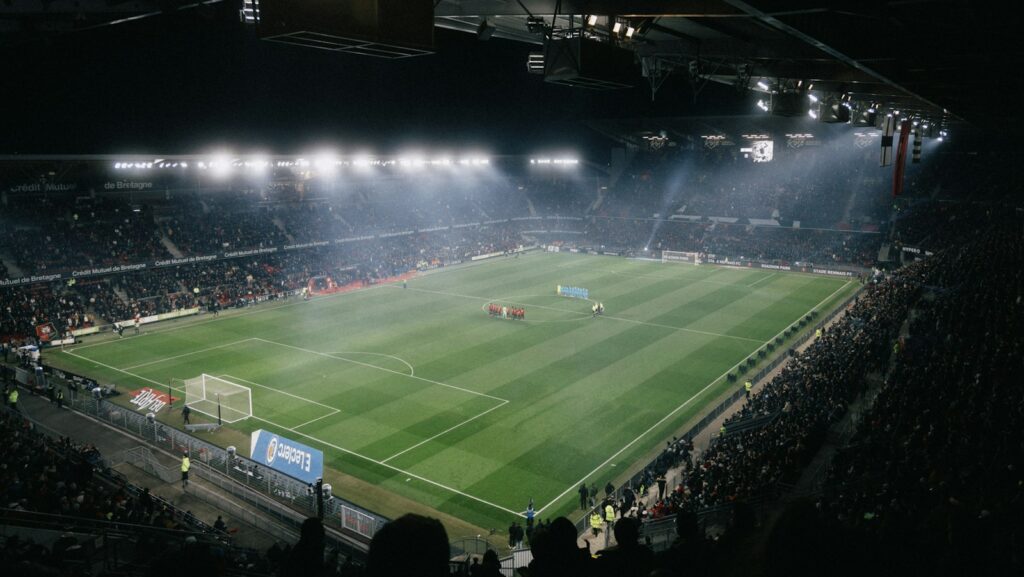“The soap opera is coming to an end” said the new Man Utd manager, Ruben Amorim.
He was referring to his appointment, but you would be forgiven for thinking that this is just the latest series in a six-season boxset, based on the 11 years since Sir Alex Ferguson retired. (A series for each of the five permanent managers; let’s not dwell on the four mini-series for each of the caretaker managers).
There have been many column inches dedicated to what has gone wrong at the club over that period. It has coincided with the rise and dominance of Man City and the resurgence of Liverpool and Arsenal, which only serve to underline how far Man Utd have dropped off.
I’m not going to add more to that debate, but instead will outline how Man Utd can get itself back to being one of the world’s most successful football clubs. And by success I mean winning on the big stages, not just being worth a lot of money.
A case study for investing in organisational culture
This is a short case study of the power of organisational culture and I will make the case for a cultural reset at this club. While your organisation may not be a big premier league club, the principles remain the same.
First, a quick history lesson
For those not familiar with Man Utd’s recent history, this is a club that has been phenomenally successful but is currently underachieving and has been drifting since 2013.
Prior to this Sir Alex Ferguson, the manager between 1986 and 2013, was fantastically successful and helped build the club to become a global powerhouse.
There are two key points to consider at this point.
First, Ferguson was the archetypal ‘strong’ leader who was the undisputed boss of the club. He had a clear set of principles and was ruthless in his management of players and egos. It was his way or the highway. But it was a very distinct culture, and it underpinned sustained success.
Second, it took four years for him to start winning trophies. The club’s owners at that time were patient and knew that that there were foundations to be built. Contrast that with the current impatience with new managers and high expectations for them to achieve breakthrough success within two seasons of joining.
Why have post-Fergie managers failed?
Since Ferguson retired the club has tried every type of manager but none have endured. There may be several reasons behind this:
- There has been a misalignment of purpose. For years it seemed that the strategy was to drive up the value and wealth of the club, creating a large cash machine for the owners. Perhaps there was the assumption that by focusing on financial growth, success on the field would automatically follow
- The organisational culture has not been consciously reset. In many other clubs the culture provides the foundation for success on the pitch. Man Utd seems stuck in a post-Fergie identity crisis
- There is an over-reliance on the manager to achieve success. This is understandable given the Ferguson legacy but naïve in today’s climate. Hence each new manager seems to have an impossible job from Day One and as soon as results take a dip the confidence starts to erode.
This pattern has become so bad that the club is jokingly referred to as a career killer for promising players and managers. And there are many examples of this.
How to create a winning culture
So, how can the club turn this around and reset the culture?
Run a culture assessment
Treat it like any other organisation and get under the skin of what’s really going on. Identify what is unique and must be preserved, and what needs to change. What are the current values in the club? Not the ones on the website but the ones actually playing out in the way people behave and work together. What impact are they having on performance (on and off the pitch)?
What are the unwritten rules that determine how things really work? Think abut the unconscious beliefs, assumptions and habits that will keep the culture stuck if not surfaced and explored fully.
Hear from stakeholders, staff, players, owners, fans and partners. Use a mix of tactics to include anonymous surveys, focus groups and one to one interviews to provide a rich mix of quantitative data and qualitative insights.
Play this back to everyone who has a stake. Just doing this is an act of acceptance and courage, which sends a message that a deep reset is taking place.
Design the desired culture
Use the assessment insights to establish a simple, meaningful set of values and behaviours that clearly describe the culture needed. Engage staff in this process so that people experience ownership and connection.
Which core values must be preserved as defining DNA in the club? What are the aspirational values that need to be introduced to take the club forward?
Get clear on the mindset shifts needed and which levers to pull to bring about the shift.
Explore how decision making needs to change to support and enable the target culture.
Show how the culture will enable the business model and strategy. This is essential to engage everyone in playing their part, embedding change and tracking and reporting the impact.
Work on embedding the desired culture
This will involve leaders role modelling the values, evolving new ways of working and decision making, to groove in new habits.
It’s vital to establish a common understanding of the reasons for change, the new gameplan and how everyone contributes. Just as the team on the pitch needs this, so does everyone else.
If the players don’t already know, the culture assessment will identify the blockers for change and, crucially, who is on-board and who needs to be aligned (or moved on).
Will the club do this kind of culture development?
The new owners have a reputation for building high-performance culture and teams, so they should know the territory.
However, it’s difficult to do this type of thing yourself – we can quickly be subject to institutionalised thinking, behaviour and assumptions. It’s doubly difficult when there is that weighty legacy. This is not a ‘greenfield’ situation. Often, we all need our blind spots to be pointed out by an impartial third party.
In the meantime, let’s see if the next new manager can break the cycle. I wish him good luck.
Looking to conduct a cultural assessment within your own organisation? Pecan Partnership can help you get under the skin of the way you do things, the causes and the impact on strategy delivery. Find out more.








